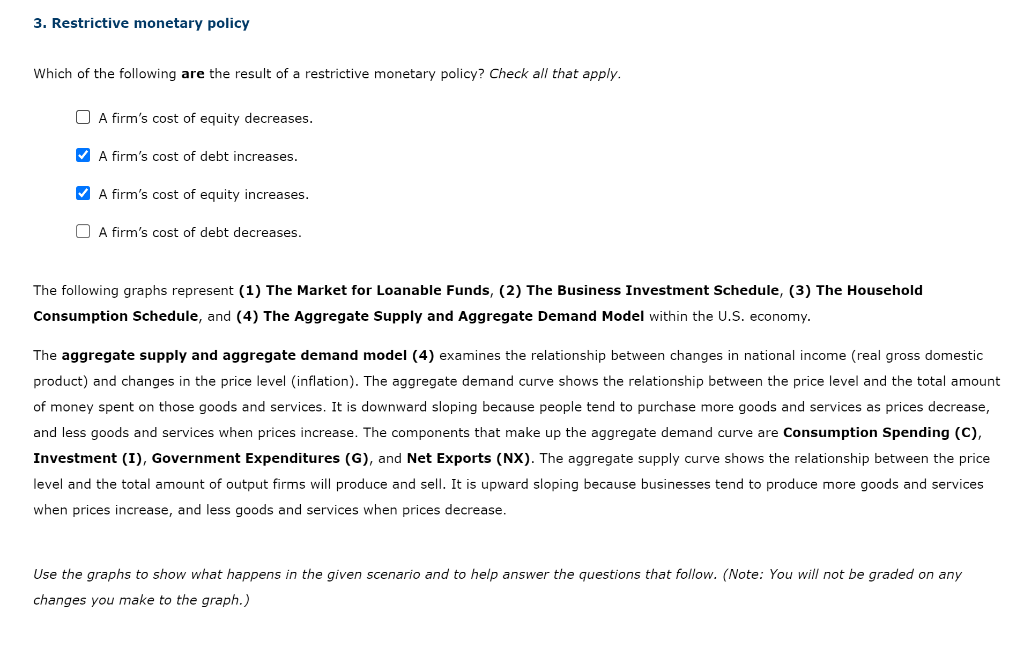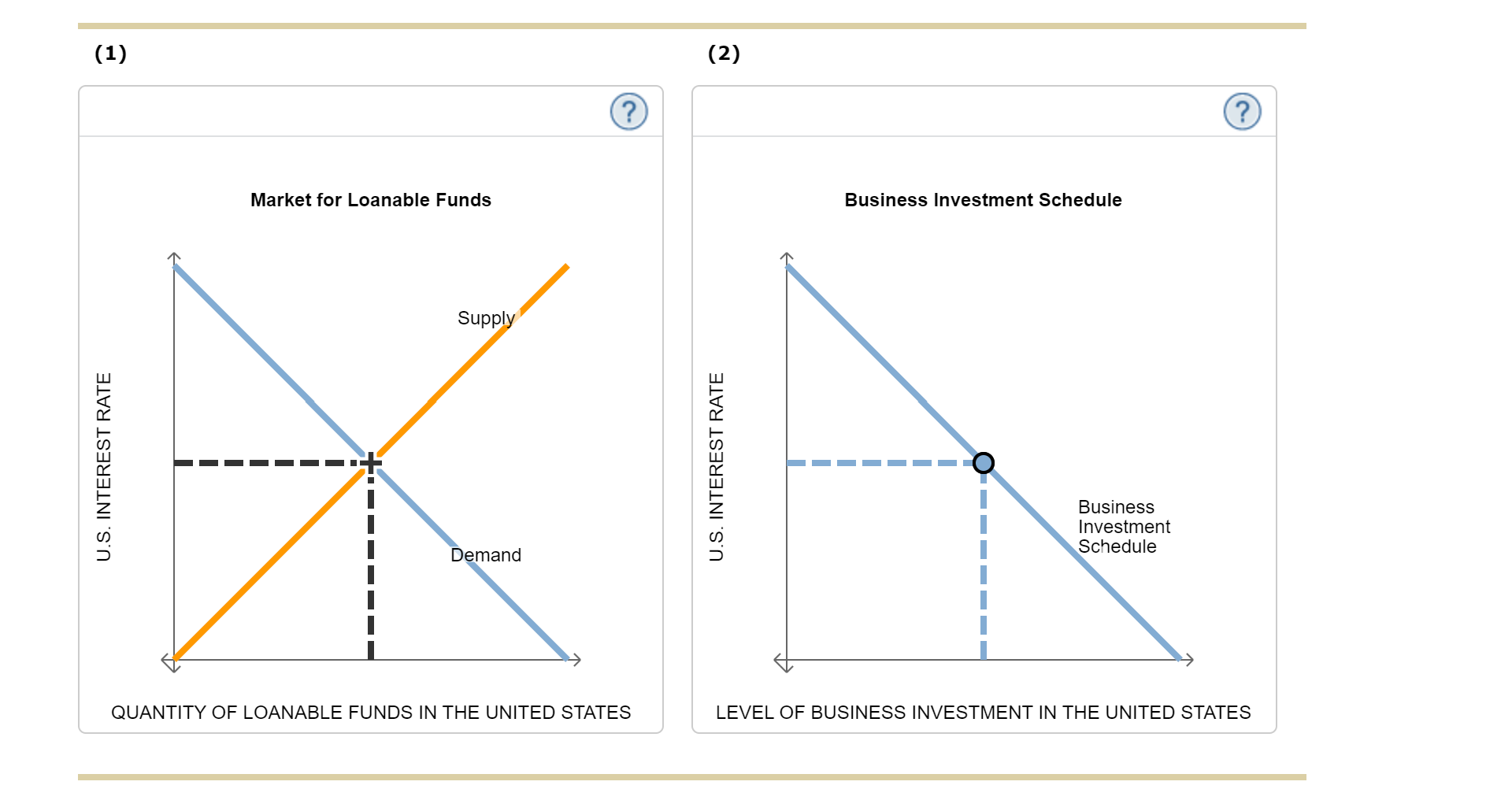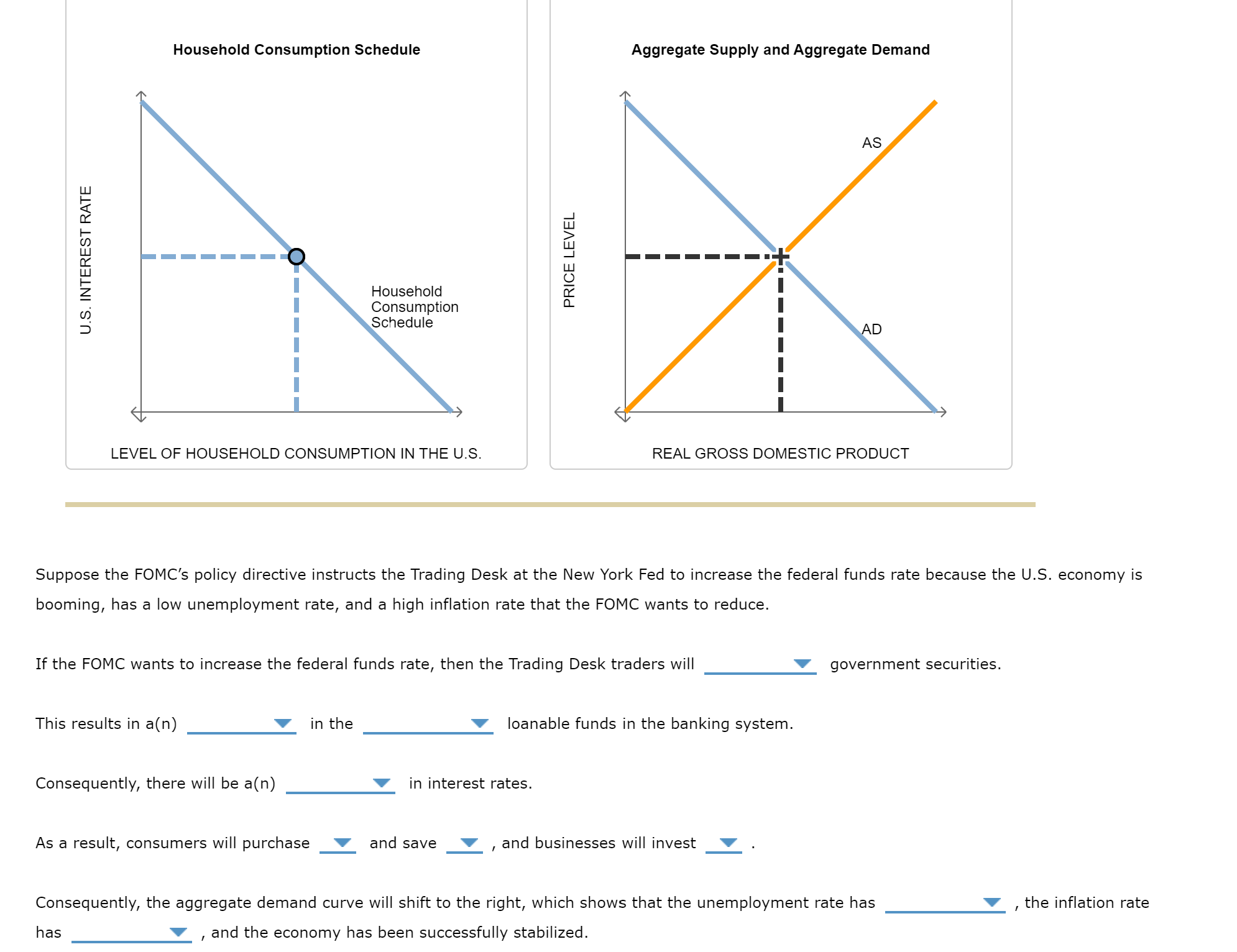


3. Restrictive monetary policy Which of the following are the result of a restrictive monetary policy? Check all that apply. A firm's cost of equity decreases. A firm's cost of debt increases. A firm's cost of equity increases. A firm's cost of debt decreases. The following graphs represent (1) The Market for Loanable Funds, (2) The Business Investment Schedule, (3) The Household Consumption Schedule, and (4) The Aggregate Supply and Aggregate Demand Model within the U.S. economy. The aggregate supply and aggregate demand model (4) examines the relationship between changes in national income (real gross product) and changes in the price level (inflation). The aggregate demand curve shows the relationship between the price level and the total amount of money spent on those goods and services. It is downward sloping because people tend to purchase more goods and services as prices decrease, Investment (I), Government Expenditures (G), and Net Exports (NX). The aggregate supply curve shows the relicen level and the total amount of output firms will produce and sell. It is upward sloping because businesses tend to produce more goods and services when prices increase, and less goods and services when prices decrease. Use the graphs to show what happens in the given scenario and to help answer the questions that follow. (Note: You will not be any changes you make to the graph.) (1) (2) LEVEL OF BUSINESS INVESTMENT IN THE UNITED STATES Suppose the FOMC's policy directive instructs the Trading Desk at the New York Fed to increase the federal funds rate because the U.S. economy is booming, has a low unemployment rate, and a high inflation rate that the FOMC wants to reduce. If the FOMC wants to increase the federal funds rate, then the Trading Desk traders will government securities. This results in a(n) in the loanable funds in the banking system. Consequently, there will be a(n) in interest rates. As a result, consumers will purchase and save , and businesses will invest Consequently, the aggregate demand curve will shift to the right, which shows that the unemployment rate has , the inflation rate has , and the economy has been successfully stabilized. 3. Restrictive monetary policy Which of the following are the result of a restrictive monetary policy? Check all that apply. A firm's cost of equity decreases. A firm's cost of debt increases. A firm's cost of equity increases. A firm's cost of debt decreases. The following graphs represent (1) The Market for Loanable Funds, (2) The Business Investment Schedule, (3) The Household Consumption Schedule, and (4) The Aggregate Supply and Aggregate Demand Model within the U.S. economy. The aggregate supply and aggregate demand model (4) examines the relationship between changes in national income (real gross product) and changes in the price level (inflation). The aggregate demand curve shows the relationship between the price level and the total amount of money spent on those goods and services. It is downward sloping because people tend to purchase more goods and services as prices decrease, Investment (I), Government Expenditures (G), and Net Exports (NX). The aggregate supply curve shows the relicen level and the total amount of output firms will produce and sell. It is upward sloping because businesses tend to produce more goods and services when prices increase, and less goods and services when prices decrease. Use the graphs to show what happens in the given scenario and to help answer the questions that follow. (Note: You will not be any changes you make to the graph.) (1) (2) LEVEL OF BUSINESS INVESTMENT IN THE UNITED STATES Suppose the FOMC's policy directive instructs the Trading Desk at the New York Fed to increase the federal funds rate because the U.S. economy is booming, has a low unemployment rate, and a high inflation rate that the FOMC wants to reduce. If the FOMC wants to increase the federal funds rate, then the Trading Desk traders will government securities. This results in a(n) in the loanable funds in the banking system. Consequently, there will be a(n) in interest rates. As a result, consumers will purchase and save , and businesses will invest Consequently, the aggregate demand curve will shift to the right, which shows that the unemployment rate has , the inflation rate has , and the economy has been successfully stabilized









